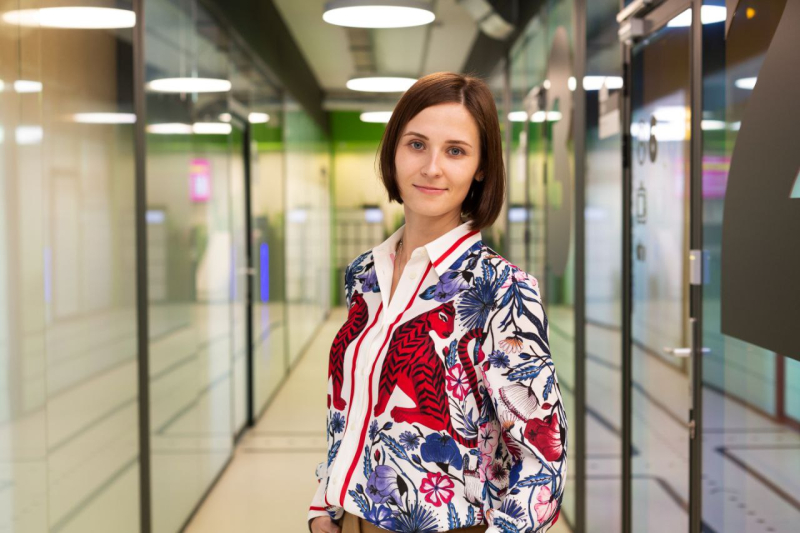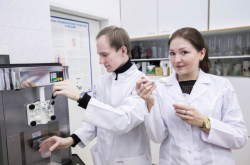Contents:
- Why screening for endocrine disorders is important
- Screening in Russia
- How can clinicians benefit from a Master’s degree
- How to apply Master’s training for screening
Why screening for endocrine disorders is important
According to federal statistics for 2023, over 4.9 million Russians are affected by diabetes, with over 95% of these cases being type 2 diabetes.
Those diagnosed with this disease often lead a sedentary lifestyle, experience weight gain, and have high blood cholesterol and sugar. Until a certain stage, all of these habits and symptoms can be reversed. However, if no action is taken to this effect, patients will have higher risks of strokes, heart attacks, and other conditions, including diabetic retinopathy that can develop already at the onset of type 2 diabetes.
Our lifestyle is a predeterminant for other endocrine diseases, too. According to the US Centers for Disease Control and Prevention, regular physical activity and a healthy diet can help maintain a healthy weight. That’s why, for instance, WHO, insists on the importance of screening for endocrine conditions at a national level.
Screening in Russia
In Russia, there are special national projects that aim to prevent endocrine diseases through the promotion of a healthy lifestyle: lower nicotine and alcohol consumption, a healthy diet, and physical activity. There are also research institutions that provide information on health and disease prevention.
In 2021, the Russian Ministry of Health and the Endocrinology Research Center developed a law regulating the use of iodized salt in food products. This regulation will help lower the spread of iodine deficiency-related endocrine diseases. Another national project is Healthy Diet (in Russian), which offers online courses about food products and eating habits.
One more way to increase public awareness of risk factors and prevention of various diseases is through various popular science projects that fit into the area of public health sciences.
Read also:

Credit: photogenica.ru
According to Anastasia Kryuchkova, among the several Master’s programs in this field that are available in Russia, the one offered at ITMO stands out thanks to its focus on research, not administration. Moreover, it welcomes specialists with different backgrounds, not only clinicians.
“At ITMO, we are surrounded by an interdisciplinary environment that offers a new perspective on our usual tasks. One of the program’s objectives is shaping a community of critical thinkers, who will evaluate health studies and organize evidence-based prevention and research campaigns. I believe that such programs can help us form the basis of a new medical community that will later develop public health sciences in Russia,” shares Anastasia Kryuchkova.
How can clinicians benefit from a Master’s degree
Competencies in biostatistics and epidemiology. As part of their training, students take part in research projects, such as the study of health and lifestyle of ITMO staff and students. One such study is Be Healthy that analyzes the effect of various factors within the academic environment on well-being. Among such factors are high mental workload, fully-packed schedule, lack of resting time or sleep, as well as moving from the comfort of one’s home to a student dormitory.
“Our student years are crucial in terms of our eating habits. Within Be Healthy, I am responsible for eating habits research as an endocrinologist and dietologist. This study shows us how food choices are influenced by such factors as food availability, its diversity, price, and even knowledge in this field,” says Ms Kryuchkova.
Anastasia Kryuchkova. Photo by Dmitry Grigoryev / ITMO.NEWS
Diverse community. While half of the program’s students are medical specialists, others enroll with different prior specializations, such as linguistics, journalism, political science, and others. This diversity offers clinicians a chance to expand their view on the problem with different perspectives.
“My fellow student, Valeria Balayeva, who is originally a linguist, oversees the eating habits research within Be Healthy with me. She has an interest in nutrition science and therefore looks at our research subject from a different point of view. Whereas I consider the macronutrients, she focuses on a mindful approach to eating. Thus, by combining our expertise we get a broader overview of the problem,” explains Anastasia Kryuchkova.
Evidence-based thinking. The evidence-based approach in medicine means that all decisions about treatment, prevention, and diagnostics are based on their proven efficiency and safety. Understanding how such studies are conducted and knowing biostatistics methods and terms (risk ratio, confidence interval, etc.) will help practicing clinicians correctly evaluate any research they come across.
How to apply Master’s training for screening
Introduce healthy habits at the university. By taking part in research starting from their first year, students have already accumulated data on indications of eating disorders among ITMO staff and students. Currently, the researchers are developing recommendations on healthier eating habits.
“When I offer diet recommendations to my patients, I rarely receive any information on whether or not they did implement some of my advice – and what was the result. With Be Healthy, we have the chance to form a supportive environment and trace its effects. This way, we can test a university-wide solution that can later be scaled to include other universities or even wider projects,” adds Ms Kryuchkova.
Communicate research results to the public. A key element of disease prevention is proactive communication – a popular science explanation of studies conducted by medical researchers.

Credit: photogenica.ru
Read also:
The Results of ITMO’s First Large-Scale Study of Quality of Life in Academia
Recently, Anastasia Kryuchkova won a grant from ITMO’s Institute of International Development and Partnership for her podcast on health and medical research at ITMO. In the first episode, Anastasia talks to Mikhail Pokidko, the deputy head of the Strategic Development Department, about deeptech startups at the intersection of science and medicine.
Create a safe and convenient workspace. Another approach to disease prevention is studying staff well-being at their workplace, which is also a field open to public health sciences graduates. Such studies help create safer working conditions, preventing common symptoms like dry eye syndrome with measures like improving workplace ergonomics, offering eye drops, and others.





